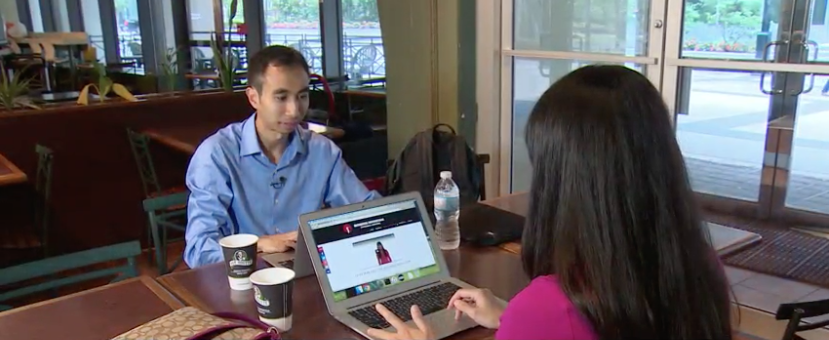This is the story of how a couple in their early thirties retired with $1 million in the bank. Computer engineer Kristy Shen and her husband Bryce Leung recently left their jobs to travel the world. It might seem impossible, but Shen says it was actually quite simple. It just takes careful planning.
The first thing the couple did was reject the traditional idea of home ownership. Though they once wanted to own a home, they ultimately elected not to. After having saved up $500,000, they looked at the expensive Toronto real estate market and realized it was a scam. Instead of spending their money on a house, they invested it.
“My parents have been screaming at me to buy a house for the last eight years,” Shen, now 34, told CBC News in an interview. “‘If you’re a renter, you’re a loser.'”
Shen and her husband even have a section called “Ditch the House” on their website, Millennial Revolution, which helps young people become financially independent.
Back to the investment: They put 60 percent of that $500,000 in stocks and 40 percent in fixed-income investments. When the markets started shifting around, they reversed that ratio. The couple also continued to live incredibly modestly and invest all of their savings. In just about four years, the couple says their investment doubled.
As their investments continued to grow, Shen and her husband quit their jobs. Now they don’t even pay rent because they travel so often. But being retired doesn’t mean laying on the couch until you die.
On an episode of Farnoosh Torabi’s podcast “So Money,” Shen explained that for them, retirement means “you don’t need to work anymore because the passive income from your portfolio pays for your living expenses so you can actually choose to work or not to work at that point.
Shen also noted that there are a number of costs associated with working that really add up. Once you are retired, these costs disappear.
“I also found that, actually, people don’t realize how much money they’re paying to work—like, it’s ridiculous,” Shen told Torabi on the podcast. “How much money you’re paying on commuting to work every day? How much money you have to pay for buying professional clothing and dry cleaning? For people who have kids, how much money they have to pay for daycare and childcare?”
“One of the things that people don’t realize until after they reach higher is that their costs go down, because all of those costs that are associated with working completely disappear.”
Now keep in mind: We’re not advising you to immediately sell your house and put every penny you own into stocks and bonds. But if there’s room in your budget to downsize spending and transfer that money to a solid investment, you might end up retiring earlier than you thought.







